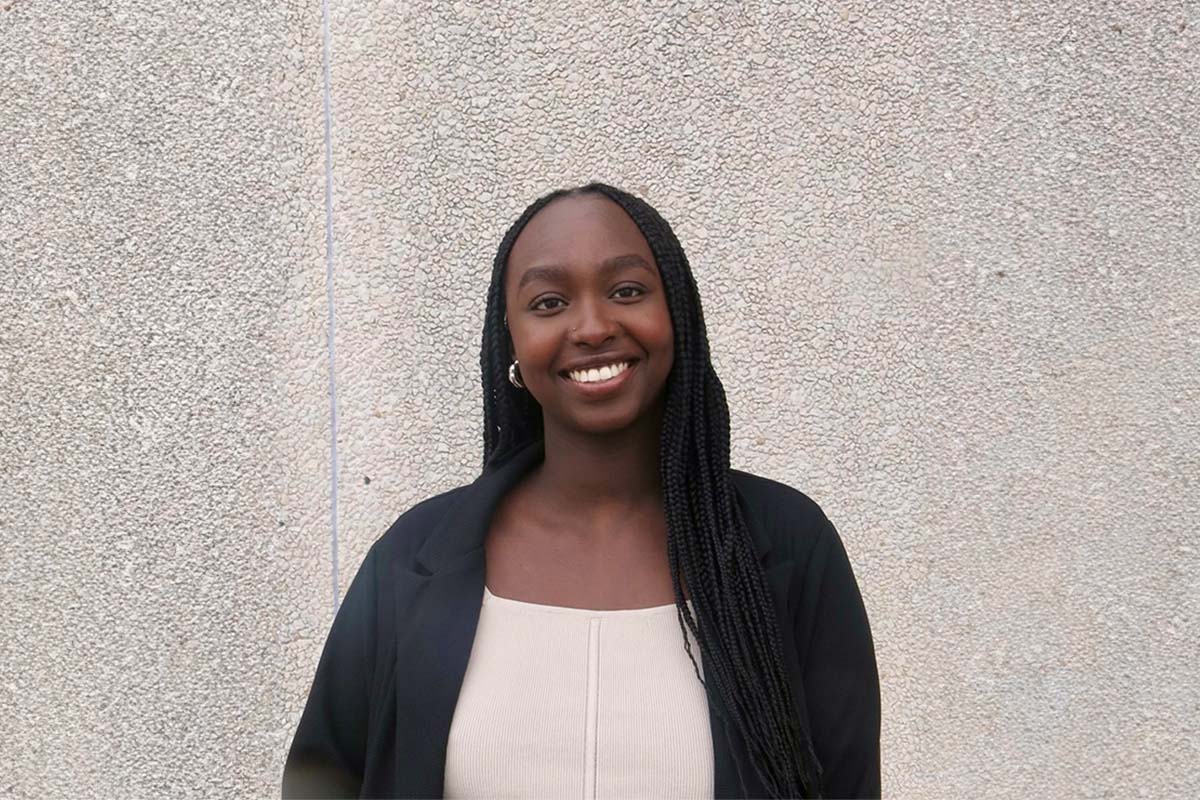
Witta Irumva, fourth-year genetics student at the University of Manitoba and UMSU Women’s Representative.
The intersection of genetics and advocacy
Black History Month 2024 with Faculty of Science student Witta Irumva
Witta Irumva is a fourth-year genetics student at the University of Manitoba and UMSU Women’s Representative. In this interview with her, we learn about her journey in science, her challenges in the field of genetics, how she hopes the Faculty of Science supports students and her advocacy work for the UMSU Women’s Centre and Black Student Empowerment Society.
1. Can you share a key moment from your journey in genetics and what sparked your interest in this field? Were there any specific experiences or classes that shaped your passion for genetics?
My interest in science was sparked from a very young age. I am a very curious person and I loved hands-on learning experiences such as science experiments. When I took my first genetics class at university, I discovered an interest in the intricacies of what sets us apart from each other. The Introduction to Human Genetics course not only deepened my understanding but also further shaped my passion for genetic diseases and exploring potential their treatments.
2. Have you faced any obstacles or unique experiences as an undergraduate student in this field? How have you navigated them?
Like many others, I faced challenges attending university online. Commencing my undergraduate journey virtually proved to be especially difficult, as I struggled to adjust to the new experience without the resources that would’ve been readily available in person. Upon transitioning back to in-person classes, I felt behind in both knowledge and experience. Fortunately, relying on my close circle for support proved helpful in navigating the new spaces. I highly recommend seeking guidance from professors or advisors, as I found their support to be incredibly beneficial.
3. How do you think the department, faculty or university could help remove these barriers and provide support?
The university has a lot of great resources; however, it may be challenging to navigate, especially for new students. I believe it would’ve helped me a lot if key resources were pointed out to me when I first started. It was always great to see them highlighted on UM Learn or incorporated into lecture slides. Additionally, I think it would be nice if your department or faculty suggested some student groups or other relevant student accounts you should stay up to date with. This could alleviate feelings of isolation and foster connections with other students in your program.
4. You are the VP for social media and marketing for the UMSU Women’s Centre and on the social media team for Black Student Empowerment Society. How do you actively contribute to fostering equity, diversity and inclusion within these roles?
In my role as UMSU Women’s Rep, I advocate and promote gender equity and inclusivity on campus through various initiatives. The Women’s Centre plan and host events that celebrate women’s achievements and contributions. We often collaborate with other student groups to create intersectional events that address the diverse experiences of women. We raise awareness about gendered based issues through campaigns and discussion sessions. On the black empowerment society, the social media team aims to use our platforms to highlight the diverse narratives of our community. We share resources and events that promote understanding and appreciation of diverse Black cultures.
5. How do your studies intersect with and complement your advocacy and leadership roles?
While advancing in my studies, I’ve noticed that there’s a lack of representation of Black Women within the field of genetics. Promoting diversity and inclusion goes beyond my official roles, my passion for advocacy extends into the science community as well. I believe that representation of individuals from diverse backgrounds in both health care and research ensures that studies do not overlook marginalized communities.






